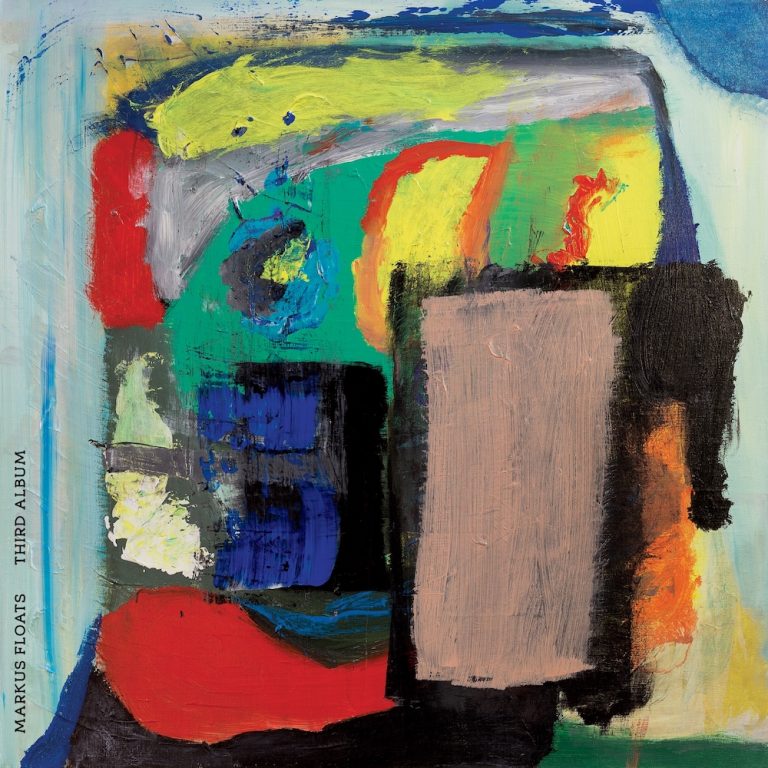Markus Lake is a major player in the Montreal leftfield music scene. The co-founder of DIY space Drones Club, bass player in a range of bands playing an array of styles from post-punk to Afrofuturism, and experimental electronica artist under the moniker Markus Floats, he’s seemingly a busy guy. The contemplative, often introspective moods on Third Album afford an opportunity to breathe.
Third Album consists largely of through-composed music, where each track is a continuation of the previous and cycles and leitmotifs are returned to at various points. Although each ‘song’ works on its own merits, they should be ideally experienced as one continuous whole. The album is full of ebbs and flows, aural eddies that never quite repeat, although the refrains swirl around, teasing you to recognise them in their new form. The pieces evolve over time with tweaks rather than via metamorphosis. Like Steve Reich’s masterful Music for 18 Musicians, there are patterns and cycles here that move forward and there is a clear linear direction to the album, as made clear by the titles of each piece.
“Forward” opens the album in tense, pensive mood. Minimal beats that sound like they could belong on the last album by The Knife clip away as a creepy liturgical refrain is coaxed from an organ, adding a sinister edge to proceedings. A ghostly, disembodied choir emerges from deep in the mix to elevate the eeriness of the track. There is a foreboding tone throughout the album in general, but it is most pronounced here. These sounds are revisited on the third track, “Forward Again”, which is a haze of uncertain chord progressions that finally meld into a blurry and meditative wash of keys, as if a moment of clarity and new sense of purpose has been established.
Amongst the array of arppegiations, there are drones and field recordings which add texture to Third Album and combine with the heavy use of organ – often switching between church and soul jazz resonance – to create an unsettling feeling at times. Chords are held longer than is comfortable, and just as you are duped into the lull of a sustained sound your safe space is rendered null and void by the introduction of a new, off-kilter noise into the fold. An album as slow and pensive as this still offers surprises.
As each track seeps into the next it becomes obvious that this is a narrative album for the conjured-up images in your head. “Forward” dissolves after a burst of triumphant glory and melts into “And”, which alters course away from the ethereal to the equally disembodied elements of machinery. A recursive synth prods and pokes at your sensibilities as you try to identify its melodic structure. The dissolution of the track’s hectic and skittish pulse finally comes and segues into soothing and warm tones that offer respite after the frantically twitching synths.
“Always” starts with synth lines folding over and into one another, transcending the need for rhythm and melody as they compete for attention. Once again, the propulsive nature of the track’s opening is subdued by dissonance and drone. The nodal quality of the piece is eventually subsumed, a key thematic trait of Third Album. Although the tracks do not inherently follow the same musical trajectory as one another, there are evident tropes and patterns that Markus Floats incorporates into the work as a whole which unites each piece as either being symbiotic or inter-related.
Album closer “Forward Always” acts as something of an epilogue by reprising many of the sounds, aural textures and timbres experienced previously. It is the highlight of Third Album, and even though it acts as a reminder of the work as a whole, it also moves the listener to new spaces, exploring its own world. It bears resemblance to Kraftwerk’s Tone Float as it pulls on recognisable tropes while also expanding upon the sound palette by means of confident extrapolation, but also experimentation. Neither are a particularly comfortable listen, either.
Third Album can be seen as a sound essay on the organic vs. the inorganic; tone vs. drone; or man vs. machine. It pushes and pulls the listener into its warm underbelly whilst being contradictory in nature from one minute to the next. The more jarring elements of the album are counterpointed with soothing cascades of sound that envelope the listener before being jettisoned off again before too long. It’s an album of tough love, of beauty in the obvious transience of things, and a deviation into a world that is simultaneously cold and distracted by itself, whilst also being reassuring and warm when needed.

